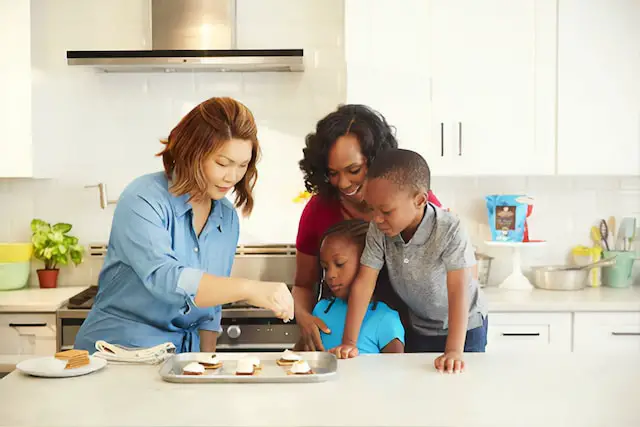What Are My Nephews Kids To Me
Families can be beautiful and a bit confusing at times. When we traverse the complicated web of family ties, we can encounter words and terms that make us scratch our heads. If you’ve found yourself thinking, “What are my nephew’s kids to me?” or perhaps you’ve been confused by the many terminology that may arise within extended families, you’re certainly not the only one.
In this blog we’ll begin an exploration to understand the complexities of extended family relations. Understanding the names and terms that define our relationships to our nephew’s offspring not simply an issue of semantics. it’s also a way to recognize the bonds that bind us all together and create meaningful family bonds.
If you’re an adoring aunt or uncle navigating this maze of family ties, or just curious about the appropriate terms for these relationships, this article will provide clarity and information. Let’s examine the definitions, their significance, and how knowing them can increase our understanding of the bonds between families. If you’ve recently welcomed a new generation into your family or are trying to bridge gaps between generations This article will assist you to answer the query “What are my nephew’s kids to me?” and give you an understanding of the dynamics in your extended family.
Clarifying Extended Family Relationships

Extended family relations are a tangle of connections that go well beyond our family unit. They include uncles, aunts cousins, cousins, and distant relatives. Understanding the nature between these families is vital for a number of reasons:
1. Strengthening Family Bonds
- Be sure to emphasize that understanding the right terms can help strengthen connections within the extended family.
- Tell stories or anecdotes that show how knowing these relationships can result in deeper connections.
2. Respecting Family Traditions
- Be sure to mention that utilizing the proper terminology is typically an integral part of family tradition and culture.
- Define how respecting these customs will foster harmony in the family.
3. Avoiding Miscommunication
- Discuss the possibilities for confusion and miscommunication that could be caused by using the wrong terms.
- The importance of clear and precise communication in family relationships.
4. Celebrating Family Diversity
- Be aware that extended families take on different types, each distinct in its dynamics and structure.
- Encourage readers to celebrate and embrace the diversity of their own families.
Navigating Nephew’s Kids Relationship
After we’ve stressed the importance of knowing the extended family relationship and relationships, let’s look at the relationship you have with your nephew’s children, and the appropriate terms to address it:
1. Direct Relationship
- Begin by describing the direct connection between your nephew’s children and your own.
- It is important to emphasize that this connection is usually simpler than many other extended family connections.
2. The Commonly Used Terms
- Introduce the terms applied to denote your relationships with the children of your nephew.
- Discuss how these words could differ slightly depending on regional or cultural differences.
3. Niece and Nephew
- Make sure that the children of your nephew will be your children, nieces and nephews.
- Use examples to demonstrate this connection.
4. Great-Niece and Great-Nephew
- Explain the distinction between nieces/nephews and great-nieces/great-nephews.
- Examine the generational gap is the “great” prefix signifies.
5. Grand-Niece and Grand-Nephew
- Define the terms “grand-niece” and “grand-nephew.”
- Define what these terms mean and the significance of these terms.
Understanding these connections and the terms related to these relationships You’ll be able to manage family gatherings and discussions without fear. In the next part we’ll go over the proper terminology more in depth so that you can speak to your nephew’s children in a respectful manner and give them the respect and affection they deserve from your family.
The Correct Terminology

When it comes to discussing your relationship with the children of your nephew it is essential to make use of the appropriate terms. Let’s go over the terms that you must be aware of:
1. Niece and Nephew
- Remind yourself that the children of your nephews are your nephews and nieces.
- Make clear the simple and well-known character of the relationship.
2. Great-Niece and Great-Nephew
- Define the meaning in the word “great” in front of “niece” and “nephew.”
- Make sure you know the meaning of “great-niece” and “great-nephew” indicates that they are a generation away from your direct siblings.
3. Grand-Niece and Grand-Nephew
- Explain the meanings of “grand-niece” and “grand-nephew.”
- It is important to note the fact that “grand” implies an additional generational gap in comparison”great “great.”
4. The Paternal Relationship vs. Relationships with Mothers
- Make sure to mention that the terms are the same regardless of whether the connection is made on the maternal or paternal side.
- Make clear the fact that they are all universal terms and don’t alter based on the lineage.
5. Adopted and Step Relationships
- Consider the inclusion of these terms when it comes to cases of stepfamily or adopted relationships.
- Discuss how unconditional love is one of the two most important elements of family relationships.
Knowing these terms will allow you to communicate with greater clarity and help create a sense belonging and respect within families that extend beyond. In the next part we’ll look at the importance of using the right terminology and to celebrate your relationships with your nephews and nieces regardless of whether they’re great or grand.
Conclusion
In the complex interconnectedness of family connections The question “What are my nephew’s kids to me?” may have been a bit confusing initially. But, we’ve set out on a journey with each other to understand the complexities of the family’s language and its significance in our families.
Understanding the relationships that are direct that are shared by great-nieces or nieces nephews or grand-nephews will allow us to manage family dynamics with precision. It helps foster a sense of respect and clarity which enhances the bonds we have.
Regional and cultural variations in terms of family bring us back to the vastness of humanity and the diversity it adds the world family. Although the terminology may vary however, the affection and bond that we have between our families is universal transcending borders and language.
When you set out equipped with this new information, keep in mind that the bonds between families are built on trust, love, and communication. Utilize the appropriate terms to demonstrate to your nieces and nephews regardless of whether they’re grand or great that they have the most special space in your hearts. Be open to cultural differences in your extended family, and acknowledge the individuality each brings into the family table.
What really matters is the love and affection we have for our loved ones, and that’s a way of communicating that transcends the boundaries of. Therefore, whether you’re an aunt or uncle or a great-aunt, great-uncle or even a grand-aunt an uncle, be sure to cherish these bonds and take advantage of the time you share in your family.

















